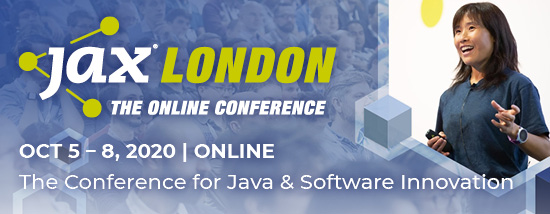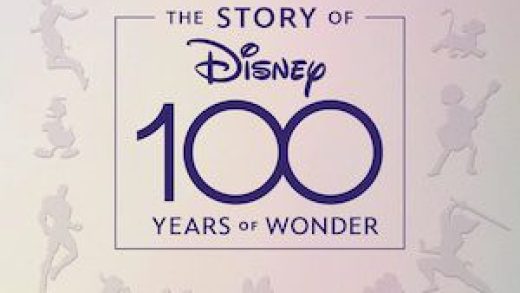A research study by The National Center for Women & Information Technology showed that “gender diversity has specific benefits in technology settings,” which could explain why tech companies have started to invest in initiatives that aim to boost the number of female applicants, recruit them in a more effective way, retain them for longer, and give them the opportunity to advance. But is it enough?
Three years ago, we launched a diversity series aimed at bringing the most inspirational and powerful women in the tech scene to your attention. Today, we’d like you to meet Brooke Thorley, VP of Customer Success at Instaclustr.
Today’s Woman in Tech: Brooke Thorley, VP of Customer Success at Instaclustr
 Brooke Thorley is the VP of Customer Success at Instaclustr, a global company that provides a managed platform of open source data-layer technologies including Apache Cassandra, Apache Kafka, and Elasticsearch, among other solutions. Instaclustr specializes in delivering these open source technologies in their 100% open source form – without proprietary versions, avoiding lock-in. Thorley joined Instaclustr in 2014 as one of the company’s very first employees. Prior to her current role, she’s served Instaclustr as a Senior Software Engineer and then as VP of Technical Operations. A graduate of The Australian National University with a degree in software engineering, she and her family live in Canberra, Australia.
Brooke Thorley is the VP of Customer Success at Instaclustr, a global company that provides a managed platform of open source data-layer technologies including Apache Cassandra, Apache Kafka, and Elasticsearch, among other solutions. Instaclustr specializes in delivering these open source technologies in their 100% open source form – without proprietary versions, avoiding lock-in. Thorley joined Instaclustr in 2014 as one of the company’s very first employees. Prior to her current role, she’s served Instaclustr as a Senior Software Engineer and then as VP of Technical Operations. A graduate of The Australian National University with a degree in software engineering, she and her family live in Canberra, Australia.
When did you become interested in technology?
The first experience I remember piquing my interest with technology was when I was 10 years old – I got my first computer. I was instantly and irrevocably fascinated by it. Right away I started investing a lot of time learning how to use DOS commands.
How did you end up in your career path?
In addition to my early interest in computers and subjects like math and physics in high school, I was also very drawn to language and writing. At the time, I wanted to go into a career related to those concentrations. But that all changed when a high school teacher of mine suggested that I attend a Women in IT Career Day being held at a local university. That event gave me a great opportunity to find out more about IT, and the (many) types of careers within the field. From that event on I was hooked, there was no turning back. I went to The Australian National University, and originally majored in telecom engineering and physics. Two years in, I found that I was enjoying the software engineering component of IT a lot more. I reoriented my studies to focus on engineering midway through, leading to my career today.
As for obstacles, in my early years in the industry, I would say I had to work to build up my self-confidence. But I’m in an area where seeing the occasional woman around isn’t such a surprise, at least speaking from here in Australia. I’ve learned how to “credential myself” when meeting new people, and make my confidence clear. I think my love for this industry comes across loud and clear as well – it’s absolutely the only thing I could imagine myself doing. The truth is, when a lot of people first meet me they’re surprised to learn what I do for a living. But they aren’t at all once I start talking about it and they hear my passion for it.
Did you receive support from your family and friends?
I’ve always felt strongly supported by my family and friends. I come from a family where hard work and dedication are deeply appreciated and always encouraged. My parents don’t have backgrounds in technical fields, but were certainly my role models and demonstrated the value of hard work. They’re also the type of parents who know how to roll with whatever happens. So they fully supported and encouraged my career choice, and are responsible for helping me grow into an adaptable and resilient person as well.
Did someone ever try to stop you from learning and advancing in your professional life?
No. I’ve been very fortunate in that respect.
A day in Brooke’s life
I’m the VP of Customer Success at Instaclustr. We’re a global company and I’m based in our Australia office. Most of my typical workday is spent on the phone interacting with our customers, troubleshooting technical questions, and helping them understand how to get the most from the data-layer technologies their businesses rely upon. In short, my job is making sure that customers around the world receive everything they need from us, both on the technical and service sides of things. I’m often involved in nurturing our customer relationships from pre-sales on, working to understand each customer’s unique data needs and how we can apply our solutions to meet them. As our customer relationships mature, I’m looking at how their requirements are evolving and how we can continue to best support them as they scale up. Really, my job is to make sure we’re exceeding expectations and earning each customer’s business by paying continuous attention to how they are leveraging the open source data-layer technologies we support.
I come from a family where hard work and dedication are deeply appreciated and always encouraged.
What are you most proud of in your career?
I’m proud that I’ve worked hard to become successful and respected in my career while following my own path. As a woman, I don’t fit the “traditional” mold of a worker in the IT industry – particularly so in software engineering – and I’m proud of that.
Why aren’t there more women in tech? What’s your take on that?
First of all, I think it is changing. I went to university 15 years ago. Today, I’m seeing more young women coming up through our company and others like us, and I’m absolutely crossing paths with more and more women across the industry. Within our engineering teams, there’s also definitely a noticeable rise in the numbers of newly-degreed women coming through.
STEM is now taught in schools from such a young age. I have a young daughter who understands that computing is everything; it’s now part of the foundational required knowledge for young people. I was probably part of the last generation where we didn’t always have a computer – hence why it was such a transformational moment when I was 10.
Whether or not IT will ever get to a 50/50 male-female balance…I don’t know. For me, if one teacher hadn’t point it out as an option, I wouldn’t have considered it. Today, though, it’s thought of as a clear option available for women. And there are so many career routes within the field – not just in the area of hands-on-the-computer-programming. But reaching more of a balance will take time.
Could you name a few challenges (or obstacles) women in tech face?
In my experience, at companies that have only been around for the last 10 years or less, I never detect discrimination. Generally, with engineers, people are judged and rewarded based on their technical proficiency – and rightfully so.
From my perspective, many of the challenges that women in technology face are those outside of work. Many women get to the point where they want to have a family, and need to figure out how to juggle those work and family demands, and whether that means taking time off. That isn’t to say that men don’t have responsibilities and decisions to make through that period of life as well, of course. But speaking as a woman with a young family, it’s one of (if not the) biggest career challenge myself and my female peers will encounter.
Would our world be different if more women worked in STEM?
My short answer: yes. How exactly would it make our world different…I don’t know! I do think the impacts will be positive and beneficial if the world sees more women reach success in STEM fields, particularly across cultures where the technology-industry workforce is still particularly male-dominated.
Achieving institutional change in any field requires that change to come from the next generation.
Discussion about more diversity in tech is gaining momentum. How long will it take to see results from the current conversation?
I don’t agree with using quotas to achieve more diversity in tech. I think that everyone needs to get into the industry on their own merit and by their own choosing. How long is it going to take for us to see a greater balance in IT? Achieving institutional change in any field requires that change to come from the next generation. Today’s boys and girls are exposed to STEM from the earliest ages, so the change we’re talking about might take another 20-30 years. And it might not be a 50/50 balance. But it will likely be significantly closer.
What advice (and tips) would you give to women who want a tech career?
My advice is: work hard. Be smart. Don’t let yourself be discriminated against. If you feel like you are, leave. And don’t think that doing so is a sign of weakness, it’s not. If a company or person within a company isn’t treating you fairly, there’s someone else out there that does deserve your expertise. Be confident in your abilities. Celebrate your wins, big and little.
Here’s what women should know about the IT industry: it’s not as scary as what you may think. It’s broad, and includes so, so many roles. If you have the abilities, there’s a place for you here.
More Women in Tech:
- Women in Tech: “Experiment, deliver, retrospect, and keep learning!”
- Women in Tech: “You are the best author of your own career path”
- Women in Tech: “Dare to do what you are interested in!”
- Women in Tech: “Join meetups and other women tech groups”
- Women in Tech: “The IT sector requires a lot of energy and will”
For even more Women in Tech, click here
The post Women in Tech: “Celebrate your wins, big and little” appeared first on JAXenter.
Source : JAXenter













